Part of the city’s aesthetic heritage
One of the first things that caught my eye about Madrid was its beautiful wooden doors. Studded with ornate brass or iron fittings, the varnished panels engraved with florid designs, often with the words “asegurada de incendios” mounted on a plaque above, these historic doors form an important part of the city’s architectural heritage. So integral to the urban landscape that I hadn’t noticed they’d been gradually disappearing until I read a piece in El Diario.
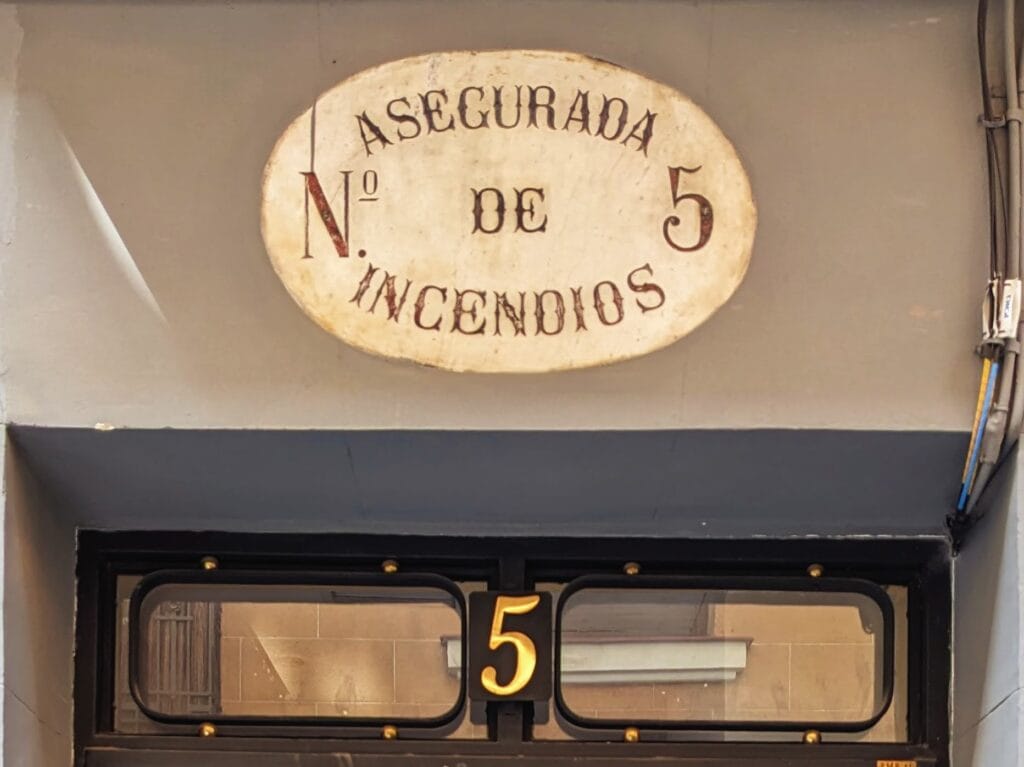
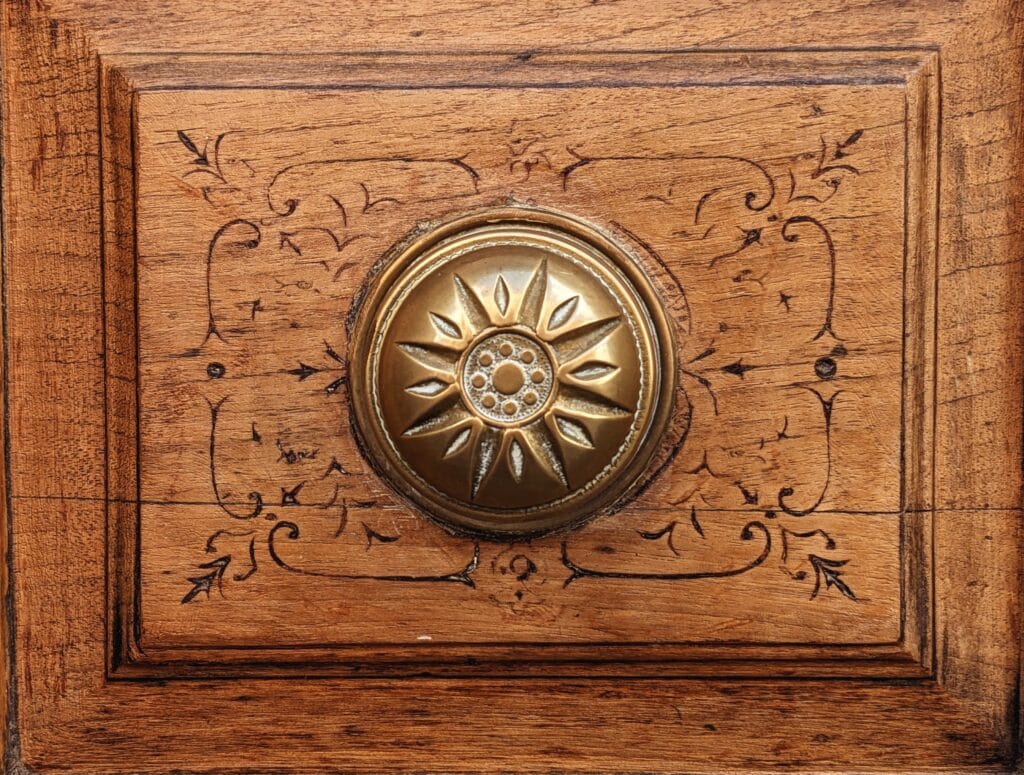
While the doors are protected by law, up until recently the legislation was so loosely enforced that they were beginning to disappear from the streets of neighbourhoods like Malasaña without any consequences for those responsible. An absolute tragedy for anyone who cares about the city’s heritage.
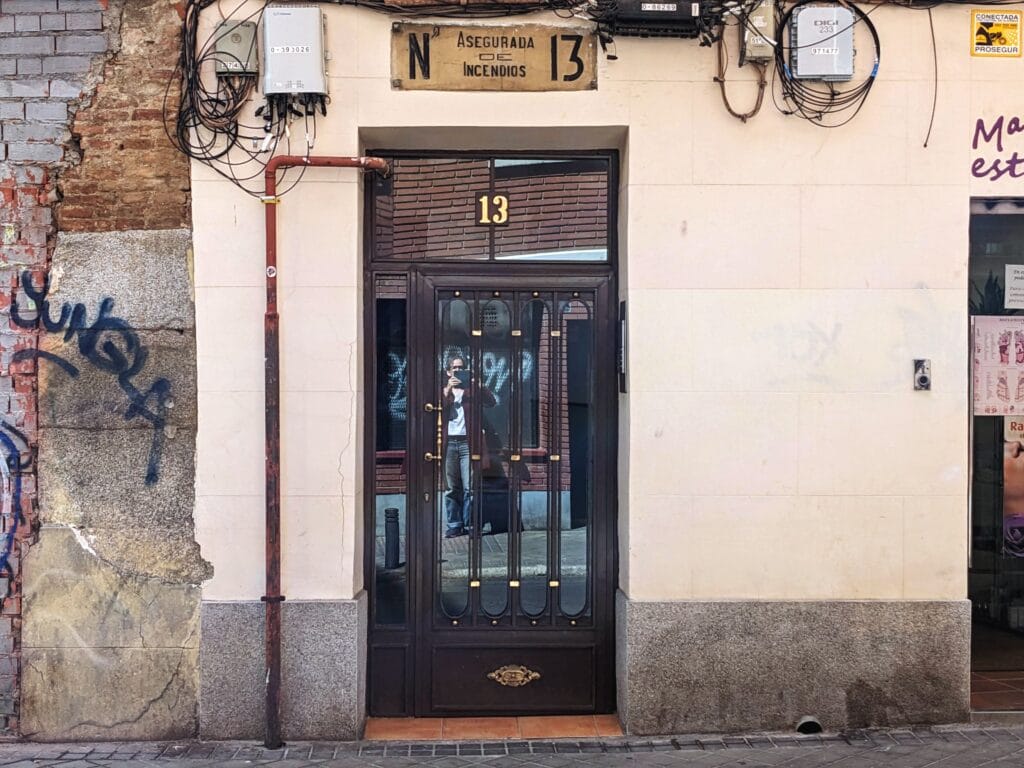
The key to restoring Madrid’s doors
Hoping to find out more about Madrid’s historic doors, I got expert restorer Jean Baptiste Van den Heede of Tasarestaura on the phone for a chat.
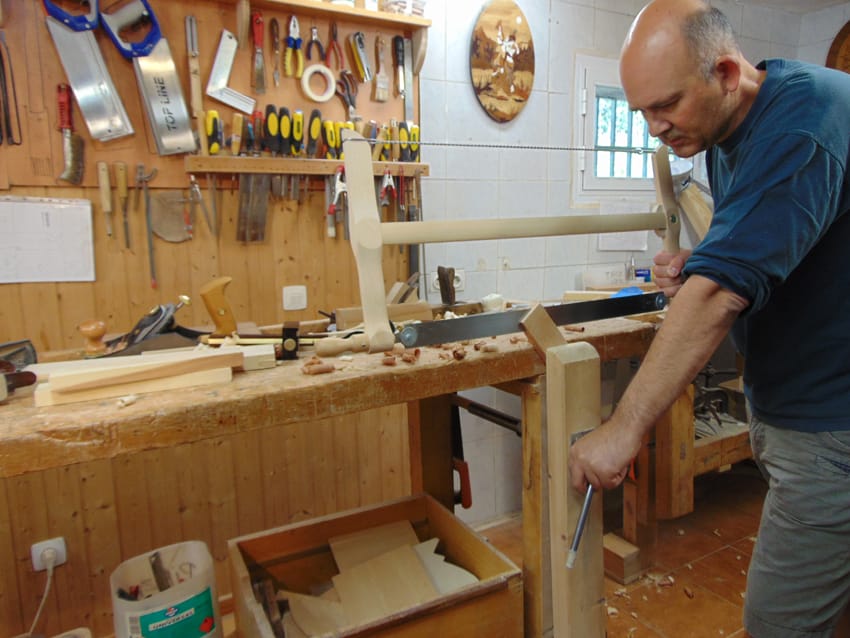
“In 99 per cent of cases, an old door can be restored, recovered and preserved. But, of course, some people, in the beginning, when the regulations were not very strict, didn’t say anything, they got together with the neighbours, and maybe they would get rid of the door, and put in a new one of whatever, plastic, metal, or wood, in the best cases, and these were very modern.”
Jean Baptiste Van den Heede
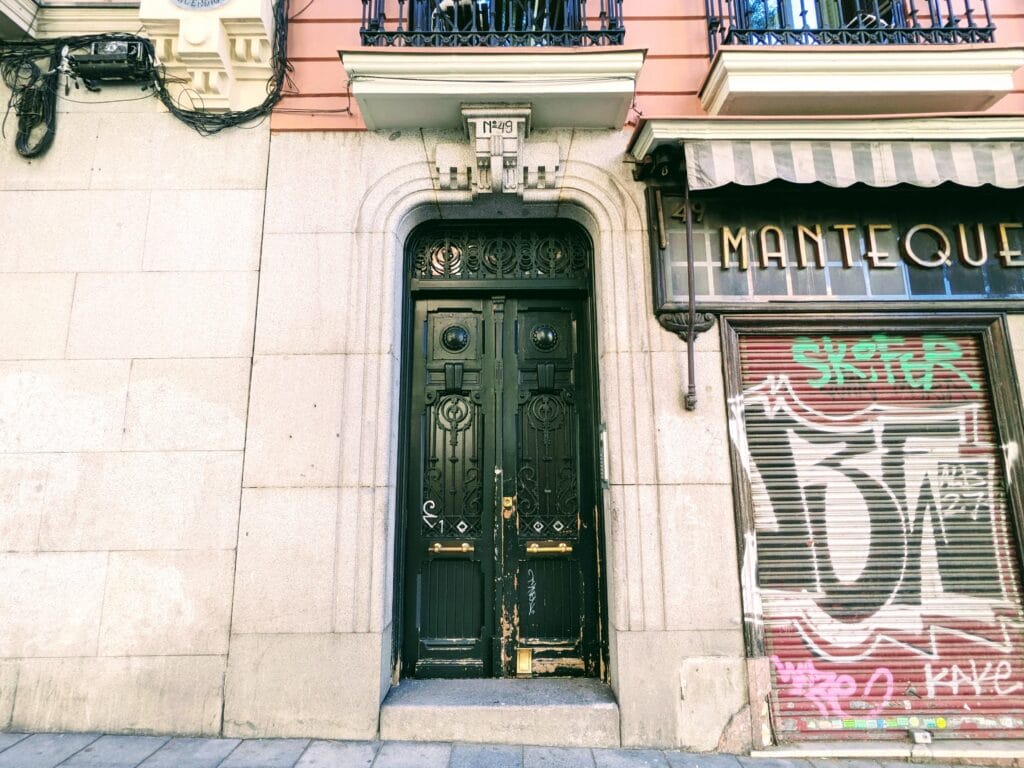
Some good news
Van de Heede who hails from Belgium, but has his workshop out in the mountains near Madrid, specialises in restoration work and has restored many doors within the city. Luckily, he says the situation has changed since the El Diario piece came out and laws are now being properly enforced.
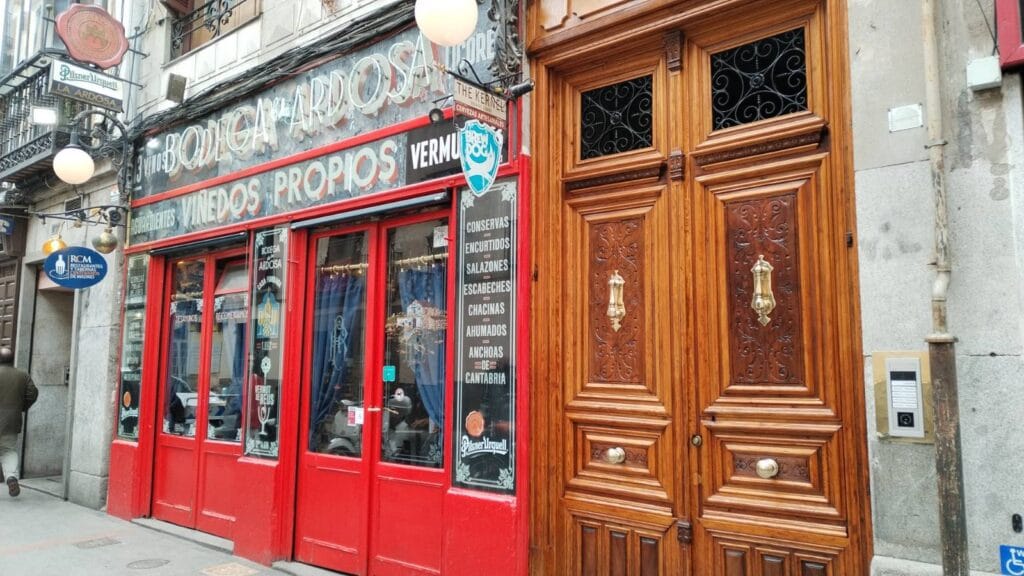
“Little by little, especially in Madrid, the community of Madrid, and especially in the city of Madrid, people have begun to see the restoration and preservation of heritage as important because it’s part of our art and culture, it’s everybody’s heritage, not just the community’s or the locals’, right?”
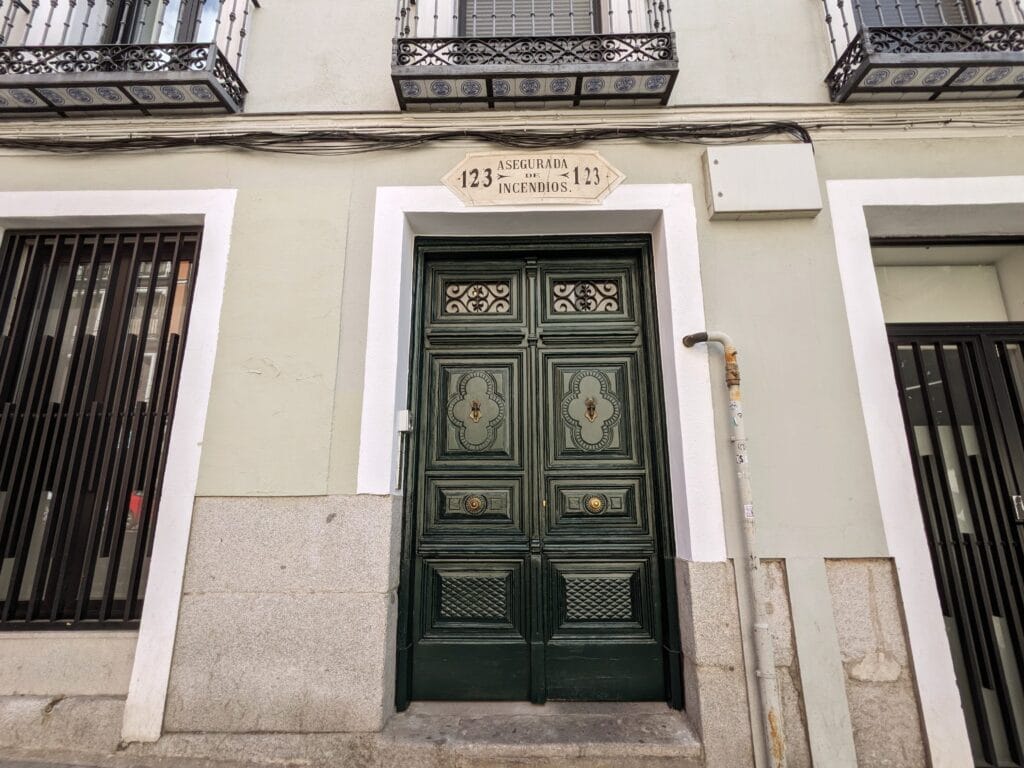
“Above all, you reinforce the idea that an old door, even if it is simple, in an old building, will be more valued for its heritage. If we respect the external architecture – the doors in this case – then the building is worth more. In this way, we can convince people.”
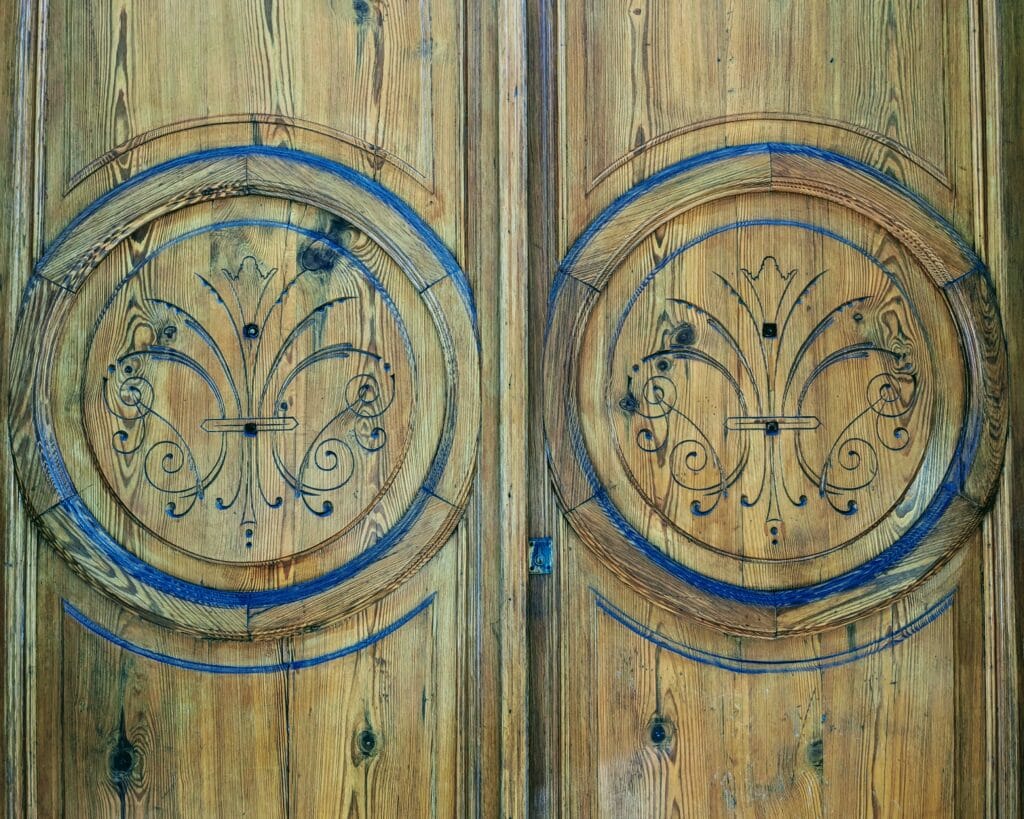
Made to stand the test of time
Generally made from pine imported from Norway or sometimes from forests in Segovia, these doors were made to last. The very best are made from Melis pine, a variety that can well withstand the elements as it’s commonly used to construct boats.
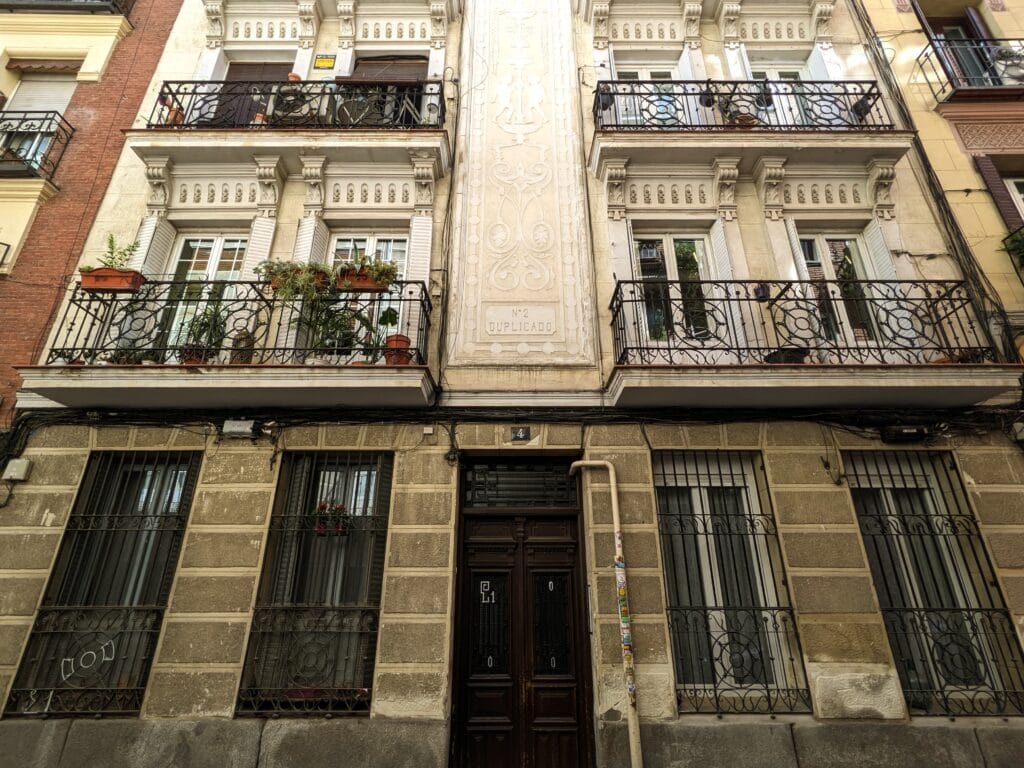
These lovely historic doors were mostly installed during the construction boom that hit Madrid during the late 19th and early 20th centuries. The demolition of Felipe IV’s city walls made room for a huge growth in Madrid’s population. Driven by the installation of the railways and the arrival of the Industrial Revolution, between 1857 and 1930 the city’s population more than doubled from 475,785 to 1,290,445. All these people needed somewhere to live, so new upmarket housing in Salamanca and tenement buildings in working-class areas like Lavapiés and Malasaña sprang up one after another.
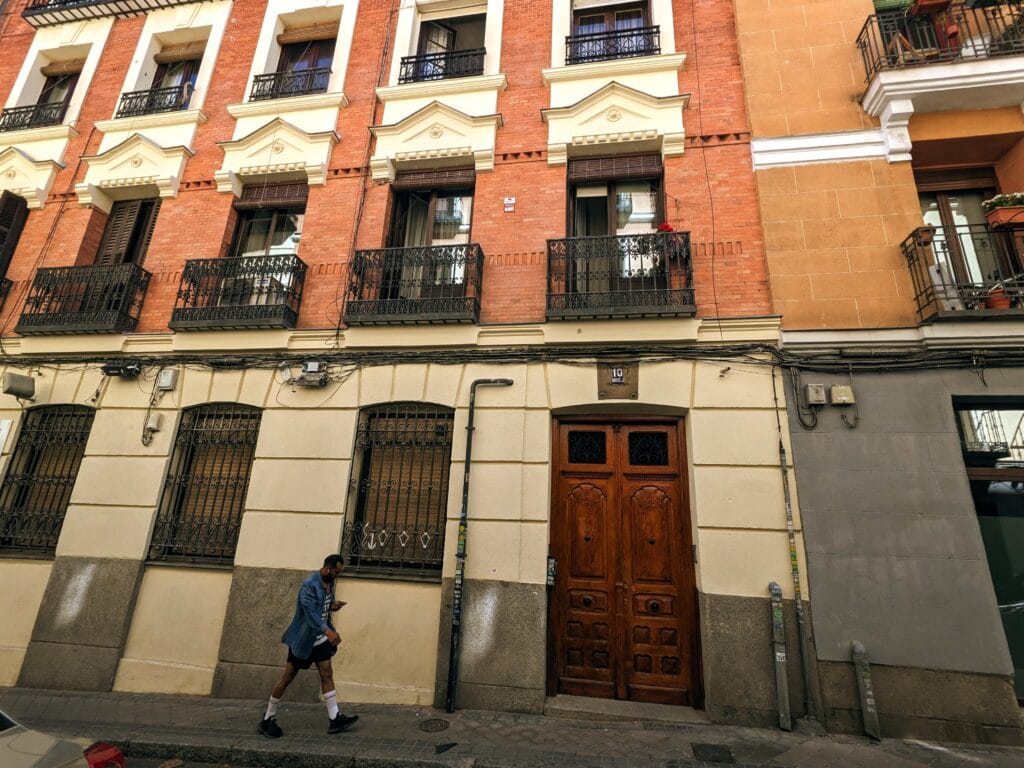
A potpourri of styles
The style of buildings from this period shows a strong Parisian influence often with a daring dash of modernism borrowed from Barcelona added along with the homegrown neo-mudéjar style thrown in for good measure. The doors decorating these modern brick-and-mortar marvels were often wood and have stood the test of time incredibly well.
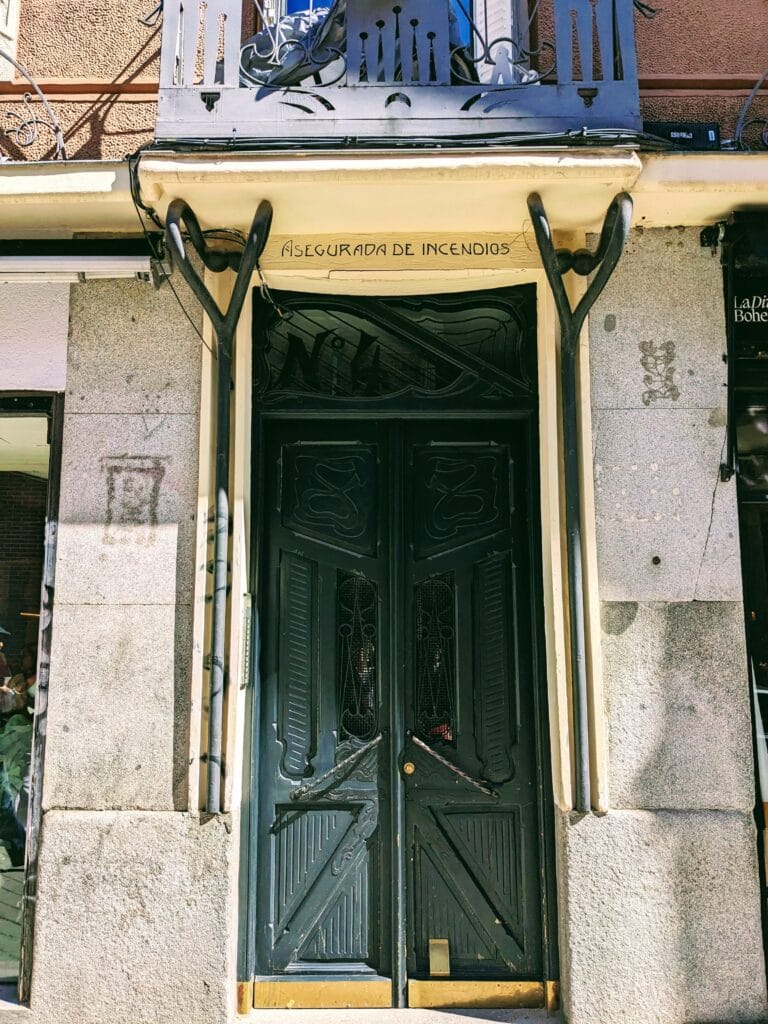
Expensive upkeep
However they do need upkeep and when I went to photograph doors around La Latina and Huertas for this post, it was evident that some had been removed and many were neglected – I even saw one that had been splashed with paint!
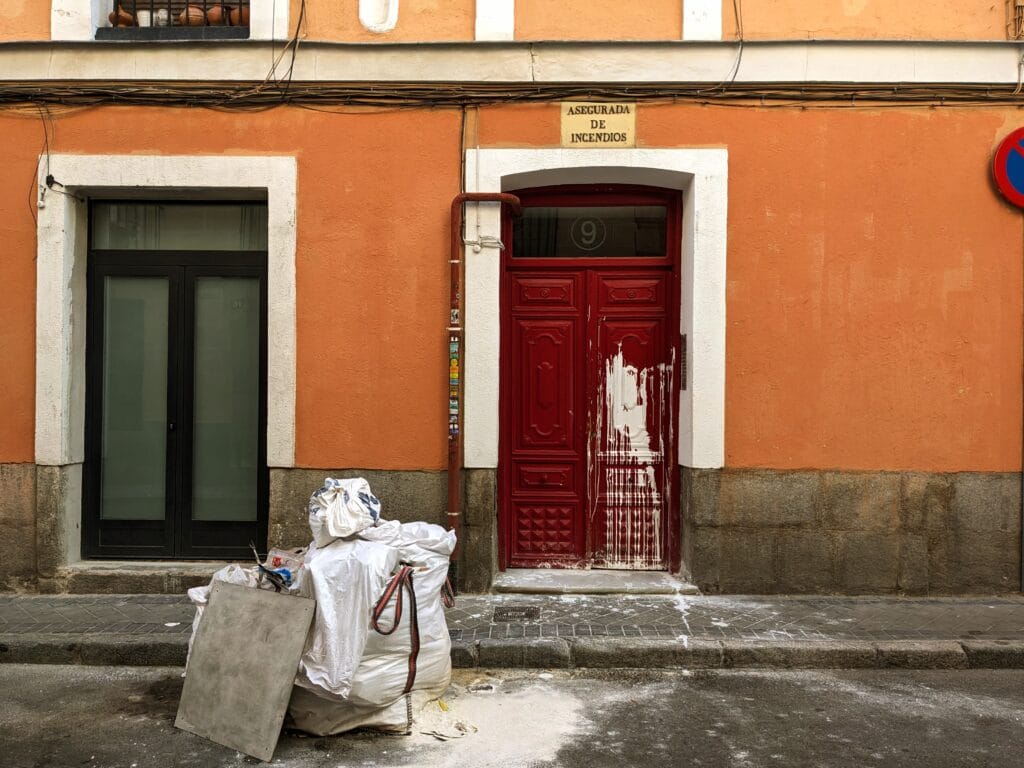
With the law now being enforced, huge fines now get slapped onto those who get rid of doors. This leaves the comunidad that is the group of residents collectively responsible for the building’s upkeep in a quandary, especially during the cost of living crisis. Proper restoration of a door costs around an average of €3,000 euros. Beyond that it will need to be cleaned and varnished annually. So it must be quite aggravating if you’ve paid for your lovely door and it then gets sprayed with graffiti!
Keen to find out more about the history of Madrid? See another side of the city with one of my unique walking tours.

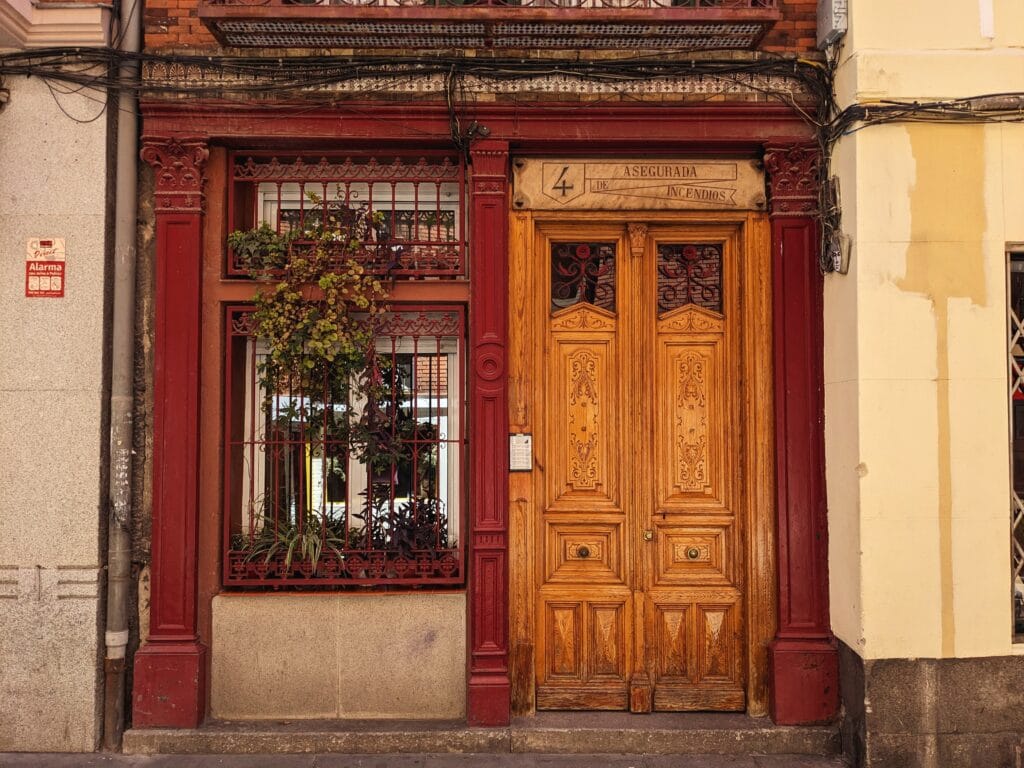
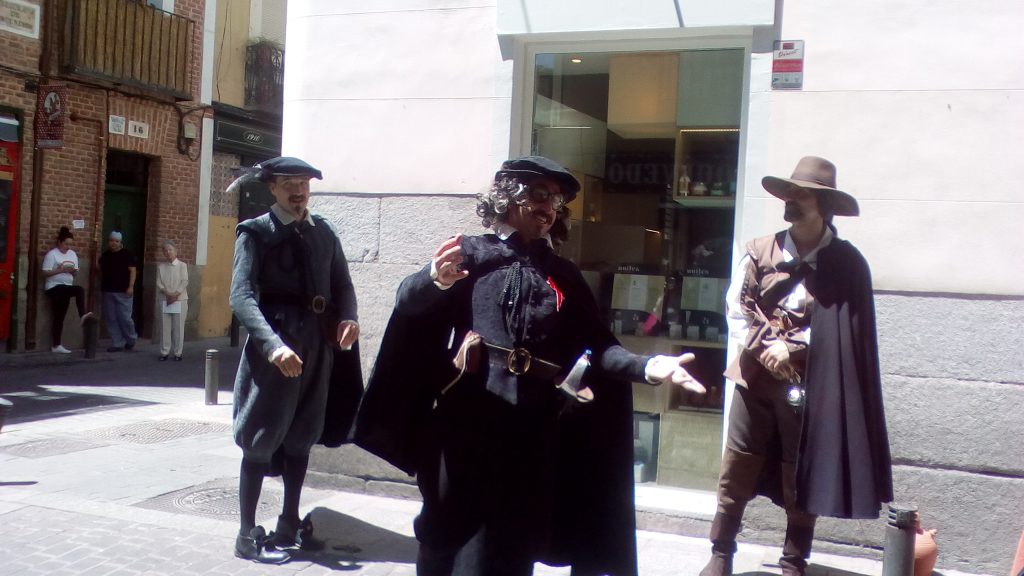

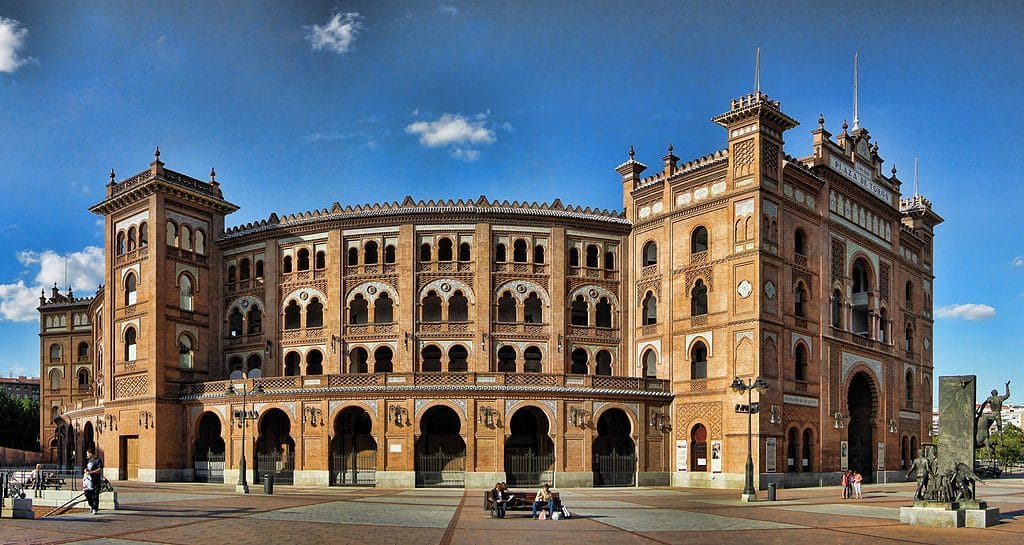

Pingback: Hidden Madrid : Calle de la Pasa - The Making of Madrid